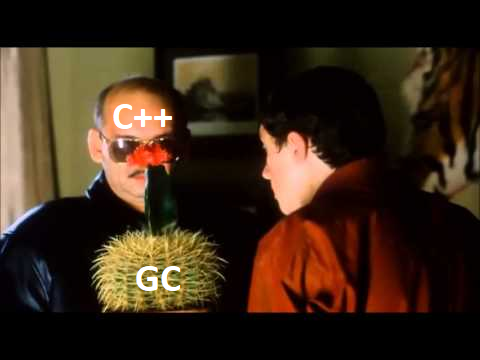Uuu, a które cudo tak robi? Nie ironicznie pytam, bo ja się zatrzymałem na wariacjach javowej ConcurrentHashMap gdzie, w uproszczeniu, blokujemy pojedyńcze kubełki zamiast całej kolejkcji, oraz takie, które robią użytek z dzielonych muteksów/blokad - shared mutex/lock.
Tu mogę się odnieść - bo temat jest mi znany z praktyki. W programowaniu funkcyjnym od dawna używa się Functional Data Structures - niestety trzeba poczytać, żeby ogarnąć (jest dużo prezentacji i video).
Paradoks tych struktur danych polega na tym, że w dowolnym małym benchmarku wyjdą oczywiście gorzej od mutowalnych (klasycznych) wersji (lista, hashmapa, etc.). Jeśli jednak wprowadzi się je w większym kodzie (np, aplikacji bankowej w javie) to okazuje się, że dostajemy zysk i na CPU i na RAM. Pierwszy raz jak to zobaczyłem to aż się zdziwiłem :-). Magii aczkolwiek nie ma.
Normalnie te struktury dają lekki narzut - powiedzmy 5-30% (w złośliwym benchmarku to i wiecej niż 200%) - tu mocno zależy co robimy.
Co ważne, wbrew powszechnym wyobrażeniom, niemutowalna lista nie oznacza, że jak chcemy coś dodać to się nie da. Da się, po prostu dostajemy nową listę. A oryginalna się nie zmienia. I nie, nie oznacza to, że kopiujemy dane. Magia?! Nie, zachęcam do poczytania.
I teraz dowcip. W praktycznie każdej większej aplikacji, gdzie mamy klasyczne mutowalne listy, mapy, gdzie miesiącami (latami) pracuje wielu ludzi, używa się defensive copying. Człowiek się szybko uczy, że bez tego tylko śledzi dziwne błędy, bywa, że dc jest wręcz wymuszane na review.
Przykład: Tworzymy nowy obiekt z listą (jako pole), który dostaje ją jako arg konstruktora - najpierw kopia, bo cholera wie co to za lista, i co ktoś z nią zaraz zrobi. Przy zwracaniu tej listy (getter) da się zwykle załatwić bez kopiowania (widok), ale zwykle też zaraz ktoś to kopiuje. W ten sposób aplikacja ciągle coś kopiuje.
(Tu się zgadzam, że to problem bezpieczeństwa, ale w znaczeniu poprawności programu).
Przejście na persistent (functional) data structures powoduje, że całe to kopiowanie nie jest już potrzebne, można bezpiecznie sobie wszędzie przekazywać struktury (szczególnie jeśli obiekty w nich są niemutowalne). I nagle wychodzi, że benchmarki o które się obawialiśmy - po wprowadzeniu niemutowalności zamiast się pogorszyć - poprawiają się istotnie.
Trudniej mi to odnieść do GC. W zasadzie to funkcyjne struktury danych wymagają jakiegoś GC, bo nie wiemy kto obiekt (listę na przykład) trzyma i możemy zwolnić dopiero jak nikt nie korzysta (oczywiście możemy użyć Rust, ale używanie niemutowalnych struktur w Rust to coś czego jeszcze sensownie nie poćwiczyłem).
Mogę zgadywać, że autor cytowany przez chinkę (:-)) odnosić się może do sytuacji - defensive copy bez GC - vs functional data structures + GC (ale to nie jest przykład, który miałem, bo moje doświadczenie dotyczyło kobył javowych z GC w obu przypadkach).
